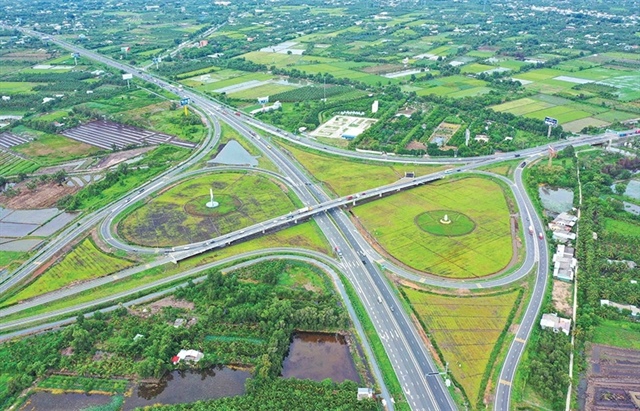Foreign capital offers way out of economic crisis
Foreign capital offers way out of economic crisis
Experts have urged Vietnamese businesses to be proactive in seeking foreign capital and reduce their reliance on loans from domestic banks.
Le Chi Hieu, chairman and general director of the Thu Duc House Development Joint Stock Co, said that businesses should take part in individual investment funds or seek international cooperation via joint-ventures with domestic or foreign companies.
Speaking at a seminar in HCM City held yesterday, Hieu said companies could also issue international convertible bonds or list their companies on foreign bourses to mobilise capital.
Organised by the International Business Knowledge Corporation in collaboration with the Sai Gon Entrepreneur newspaper and HCM City Business Association, the seminar aimed to help local companies improve business competitiveness.
According to the online source Viet Nam Report (www.vietnam-report.com), 75 per cent of surveyed businesses said that banks remained their chief capital-mobilisation channel.
Phams Linh, deputy general director of Orient Commercial Joint-Stock Bank, said that foreign capital sources would be a reasonable solution in the current economic climate.
He noted that development opportunities were more plentiful in Asia, including Viet Nam, than on many other continents.
The capital resources of international financial organisations such as the FMO (a Dutch entrepreneurial bank), the International Finance Corporation (IFC) and the Japanese International Cooperation Agency (JICA) are focused on projects in developing countries that emphasise environmental protection and energy savings.
Viet Nam and other Asian countries are destinations for such capital sources and technical assistance.
To cope with capital shortages, Linh advised businesses to be more selective in their business orders so they could fulfill them quickly and reduce loan costs.
He also urged businesses to build close linkages with associations and other companies so they could find more channels for their products.
Linh pointed out that the IFC, in collaboration with the Orient Commercial Joint-Stock Bank and BNP PARIBAS, had offered many credit preferential programmes in the import-export sector as well as so-called green, energy-saving projects.
Pham Ngoc Hung, deputy permanent chairman of the HCM City Business Association, said businesses must develop strategies appropriate to the current business climate.
"It's the right time for businesses to restructure and focus on their own competitive advantages," he added.
Opportunities
At the seminar, several experts warned that the State's support policies were only a jumping-off point, and the key factor was the initiative taken by enterprises themselves.
To increase competitiveness, businesses must improve technology, train and retrain human resources, and build trademarks.
Luong Van Tu, former head of the Vietnamese negotiation delegation for the country's accession to the World Trade Organisation (WTO), said domestic businesses should invest in better technology to make high-quality products that could be distinguished from their competitors.
He noted that their products had an international as well as domestic audience and that free trade agreements (FTAs) that Viet Nam had negotiated with countries would make the market more competitive for domestic businesses.
Apart from outdated technology, Vietnamese enterprises lack high-quality human resources capable of using modern technology. Management capacity is also another weakness.
Hieu said that companies could attract more talented people with preferential policies.
"Human resources are a valuable asset, and the key deciding factor in the success or failure of a business," he added.
Hieu also noted that, in times of crisis, trademark value was important as customers tend to choose products with reputable names.
He added that investors and foreign investment funds were also focusing on prestigious businesses, and would continue to do so in the post-crisis period.
vietnamnews























